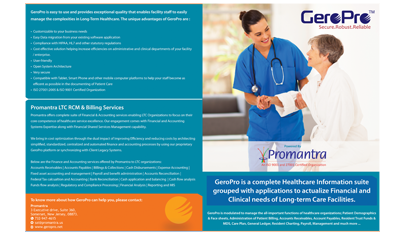General Ledger Accuracy

In the healthcare industry, discussions about financial health often revolve around revenue growth, reimbursement rates, and cost control. However, a foundational element determining an organization’s financial integrity lies beneath these larger strategies: General Ledger (GL) accuracy. For Skilled Nursing Facilities (SNFs), Assisted Living Facilities (ALFs), and other healthcare providers, the General Ledger is more than just an accounting tool. It serves as the financial backbone of the organization, ensuring that every dollar earned and spent is properly recorded, reconciled, and reported. When GL management is accurate and disciplined, organizations remain compliant, responsive, and strategically positioned for the future.
Why General Ledger Accuracy Matters
The importance of an accurate General Ledger cannot be overstated. It impacts several critical aspects of healthcare operations:
- Regulatory Compliance: In an industry governed by stringent federal, state, and payer regulations, even minor inaccuracies in financial reporting can lead to serious consequences, including audits, penalties, or loss of accreditation.
- Financial Transparency: Accurate GL data ensures that leadership teams have a truthful view of their organization’s economic standing, enabling informed decision-making.
- Audit Readiness: Healthcare organizations are frequently subject to external audits. A well-maintained General Ledger simplifies the audit process and builds trust with stakeholders.
- Strategic Planning: Reliable financial reports allow facilities to plan budgets, allocate resources, and evaluate performance against financial goals more effectively.
When organizations view GL management as a strategic priority rather than just an administrative task, they lay the groundwork for operational excellence.
Common Challenges Faced by Healthcare Facilities
Maintaining GL accuracy is challenging, particularly in the complex world of healthcare finance. Common barriers include:
- High Transaction Volumes: The sheer volume of transactions—resident billing, insurance reimbursements, payroll, and vendor payments—can overwhelm under-resourced accounting teams.
- Fragmented Systems: Disconnected billing, clinical, and procurement systems often result in inconsistent or incomplete data flowing into the ledger.
- Resource Constraints: Many facilities operate with lean finance teams that manage day-to-day operations and compliance and reporting deadlines.
- Regulatory Complexity: Healthcare accounting standards and payer rules are constantly evolving, requiring financial sophistication that not every internal team can readily provide.
These challenges can accumulate without a strong GL process, leading to financial misstatements, compliance risks, and strategic missteps.
Best Practices for Strengthening GL Management
To ensure accuracy and resilience in GL processes, healthcare organizations should consider the following:
- Integrating Systems: Connecting billing, payroll, procurement, and financial systems minimizes manual entries and automatically reconciles data.
- Routine Reconciliation: Monthly reconciliation of sub-ledgers and bank statements helps catch discrepancies early.
- Clear Policies and Procedures: Standardizing how transactions are coded, approved, and adjusted across departments reduces variability and errors.
- Ongoing Training: Keeping the finance team updated on the best industry practices and changing compliance requirements fosters a culture of accountability.
- Independent Reviews: Regular internal audits and third-party reviews validate GL accuracy and adherence to accounting standards.
How Specialized Partners Help Drive GL Excellence
While internal process improvements are essential, partnering with specialized healthcare financial services providers can further strengthen General Ledger management. Experienced outsourcing partners understand the nuances of healthcare accounting and bring dedicated expertise to ensure financial reporting is accurate, timely, and compliant. Organizations like LTCPro, with deep experience in long-term care operations, offer tailored support in general ledger maintenance, accounts payable, and overall financial reporting. Their ability to navigate healthcare-specific financial complexities helps facilities maintain compliance and use their financial data as a tool for proactive decision-making and growth planning. By entrusting operational financial tasks to knowledgeable partners, healthcare providers free up internal resources to focus on strategic initiatives, quality improvement, and resident-centered care.
General Ledger accuracy may not always be at the forefront of strategic discussions, but it is undeniably a cornerstone of financial health and regulatory compliance in healthcare organizations. It ensures that the story told through financial reports is truthful and actionable. For Skilled Nursing and Assisted Living Facilities striving for operational excellence, robust GL management is not just good practice—it is essential. With a combination of internal discipline, system optimization, and expert support from trusted partners, healthcare providers can transform their financial foundation into a competitive advantage for the future.
A perfect fit for Skilled Nursing Facilities, Assisted Living Facilities, Home Health, Hospice and Other Day Care Centres.
Download BrochureRequest a demo


























